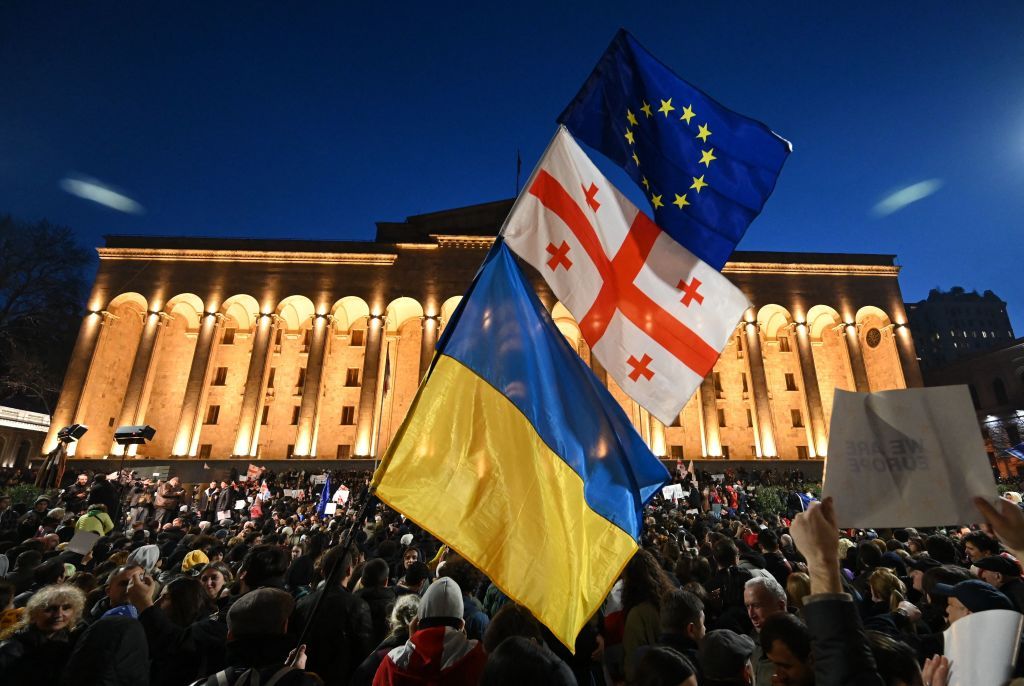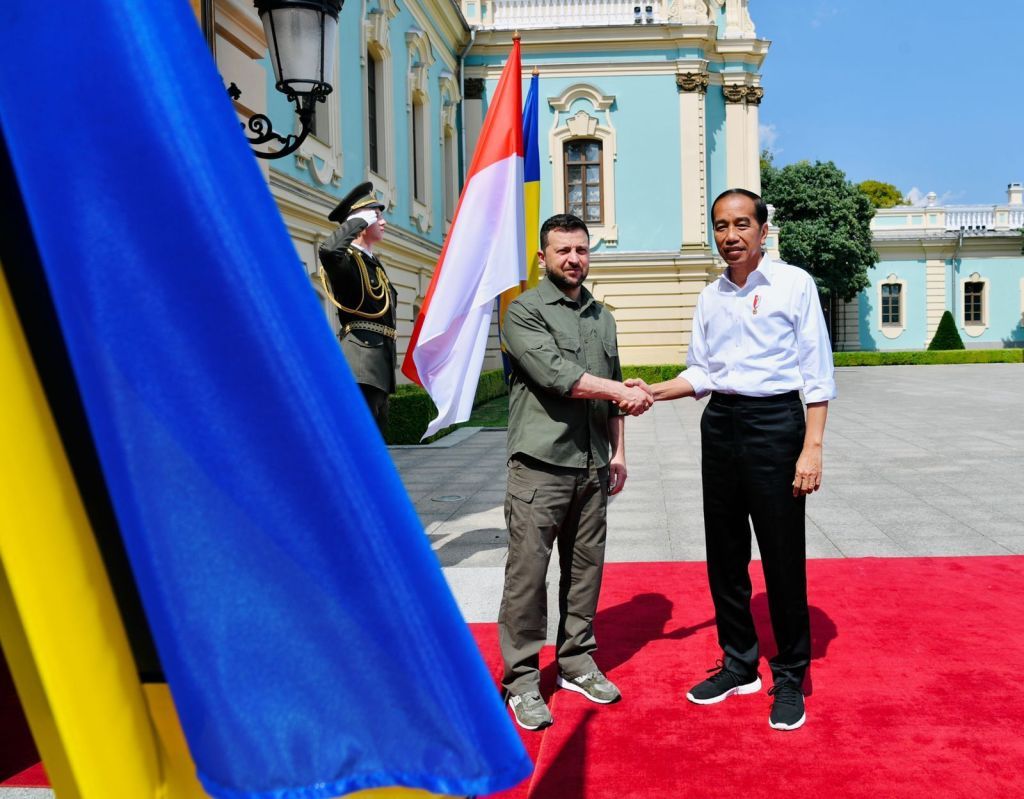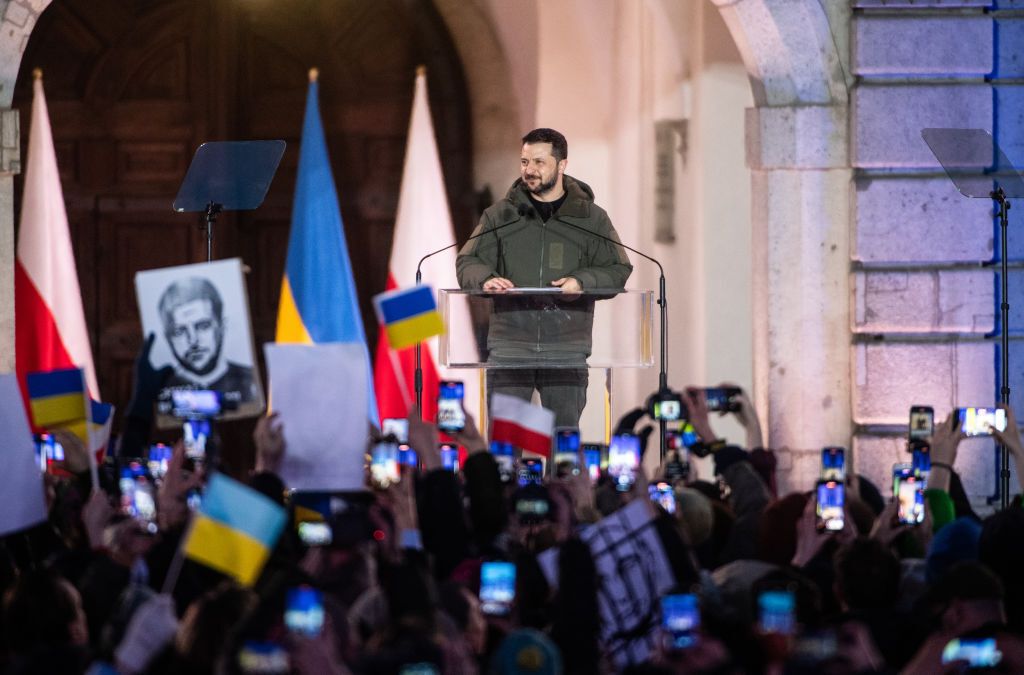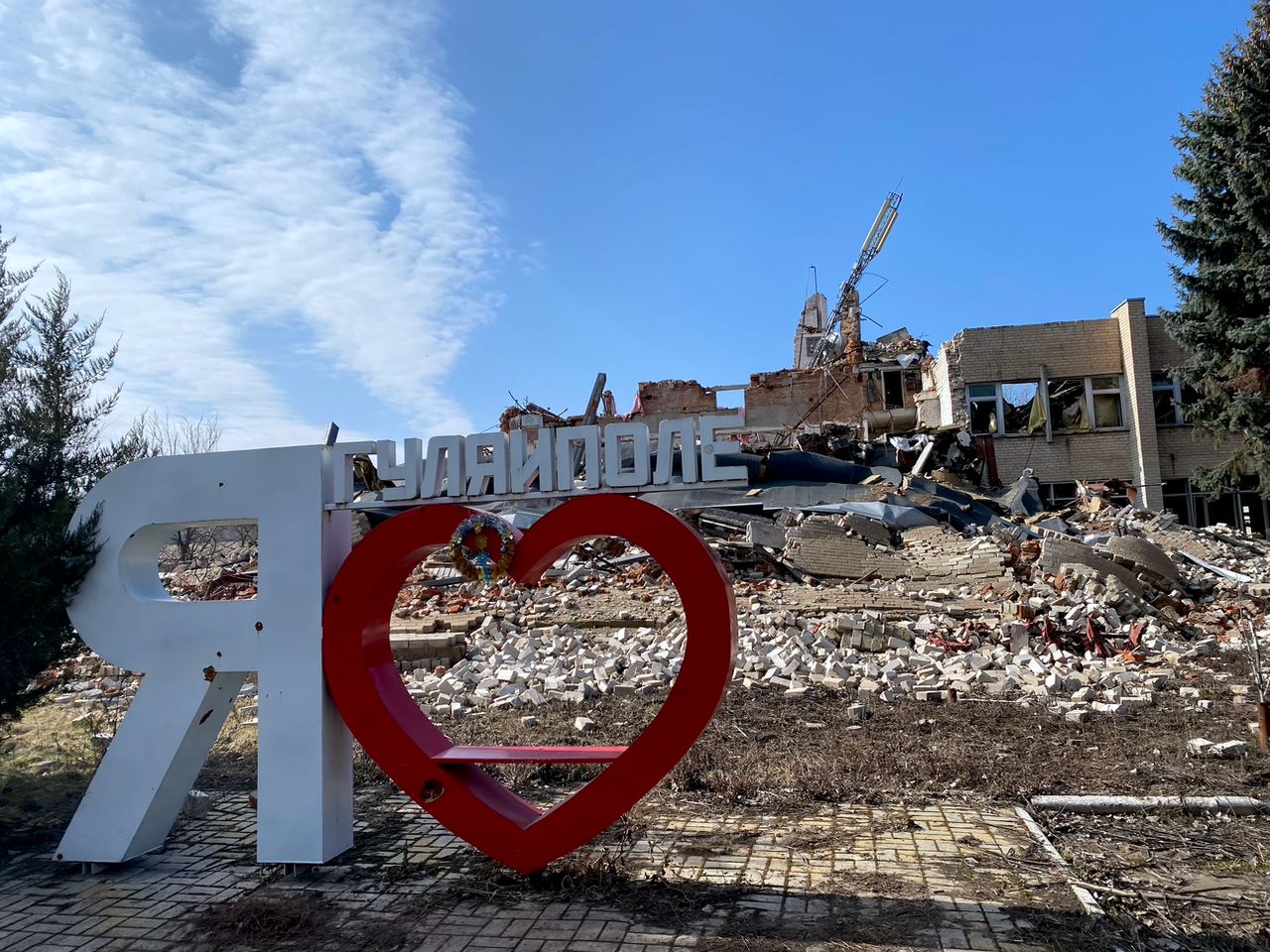Valeriia Voshchevska: International organizations and Ukraine – a case for empathy

Editor's Note: The opinions expressed in the op-ed section are those of the authors and do not purport to reflect the views of the Kyiv Independent.
As Russian tanks rolled through the streets of my home and Russian bombs started to fall onto peaceful Ukrainian cities, I held my breath in anticipation of a strong reaction from the international community and the human rights movement.
“Surely someone has to stop this?” I thought to myself, as anxiety took hold of my whole body.
Having spent many years working in the world’s biggest human rights organization, I truly believed in the unifying power of empathy – one that transcended all borders and all circumstances on the basis of the very fact that we are all human.
Together, we worked on everything from protests in Iran, to police brutality in Nigeria, to women's rights in Argentina, to the humanitarian catastrophe in Tigray, to the war in Syria.
This time it was my country that was in crisis.
But as the days went on and Russia’s full-scale invasion of Ukraine unfolded, division and not unity seemed to guide the behavior of some of the big international organizations.
As a Ukrainian and as someone who has dedicated the majority of my adult life to the human rights movement, I felt hurt, disillusioned, and betrayed.
Whenever someone would ask me why I chose to be part of this movement, I would always answer, “Well, it’s simple; it’s because I’m Ukrainian.”
Having been born in a country so valiantly fighting for its own future – one far removed from Russia’s oppressive colonial rule – I knew first-hand that freedom, justice, and equality were paramount.
Most Ukrainians who, like me, were born in the nineties after the fall of the Soviet Union, had witnessed at least two people-powered revolutions by the age of 21. We knew that people could come together, rise up, and stand up to injustice – even if that came at a high price.
It felt as if this passion to fight for freedom was embedded in us from day one. But I knew that it was something that we shared with many other people from around the world who have also fought against colonial powers, from India to South Africa to Lebanon.
That is why I joined Amnesty International in 2017, working my way up to a position that allowed me to effectively use my skills and my passion for justice to help others globally.
During my time at the organization, I met some incredible people from around the world who made me believe in the limitless nature of empathy that lay at the foundation of human rights.
I felt that no matter the circumstances, there was something that connected all of us who had experienced the pain of war, authoritarianism and oppression, and the reward of standing up for what we believed in.
What struck me the most was how people felt for each other, even though our experiences were so different.
The forgotten war in Ukraine has been raging since 2014, so when I would share with people that I was from Ukraine, I would always receive strong support. I would always respond with words of solidarity too.
Last year, after Russia’s full-scale invasion of Ukraine, I left the organization. Still, this strong feeling of solidarity stayed with me until today.
This unifying limitless empathy has always made us strong as a movement. Our common fight to protect human rights globally has allowed us to build solidarity across continents.
That is why this same unifying limitless empathy has always threatened human rights violators. Time and time again, we have seen authoritarian regimes worldwide invest insurmountable amounts of time, resources, and energy into creating divisions within the movement.
Some rhetorical devices they have used to undermine human rights globally have been moral equivalence, the politicization of human rights, and “whataboutism.”
For example, human rights violators have said for years that countries only care about human rights when their “interests'' are at stake, framing human rights as a tool of political intervention and not something to uphold because it’s the right thing to do.
Their main goal has always been to sow divisions between different causes to distract us from our work. These harmful tactics have been so prevalent and familiar to the human rights movement that some have seemingly started to internalize and replicate them – pitting victims of human rights violations against each other.
After a series of unfortunate public statements, unhelpful social media posts, and strange actions from both individuals and international organizations within the humanitarian and human rights movement – in relation to Ukraine – it seemed that some had fallen for these tactics.
Some even went as far as to use the suffering of people affected by one human rights issue – one I have personally been affected by in this instance – to make a point about the lack of action from the West on others. What this points to is the deep desensitization of many in the movement to deep human suffering that lies at the root of all these issues.
This framing also reinforces the colonial idea that human rights change only comes about through powerful Western countries criticizing their partners and not through grassroots activism. But it also, knowingly or not, undermines the needed and valid efforts extended by the world to Ukraine.
This is not to say that double standards don’t exist – people seeking safety still get denied entry at European borders, and human rights abuses still go unchecked in many different countries – but I believe that there are more constructive ways to talk about them. Ways that draw on empathy, solidarity, and our common humanity – not on our divisions and shame.
Yes, in many ways, the world’s response to the war in Ukraine has been unprecedented. But, instead of falling into the trap of calling this response out, we should call it in – by hailing it as a success and demanding it be extended to others – as clearly and explicitly as possible.
As the human rights movement, our role and mission are to convince people and governments that human rights actually matter and are worth protecting universally.
It is also our role to empower individuals and grassroots activists to take charge of the direction the movement is going in and not reinforce the ideas that all change comes from the West.
This is our chance to restore faith in human rights worldwide and set a new standard for how states and people should act to protect them – instead of falling into the trap of putting human rights into question.
The bottom line is: all war crimes should be prosecuted, all illegal invasions should be stopped, all authoritarian regimes must fall, and all people seeking safety should be welcome – and these are the principles we should be guided by.
This is how we could frame it:
“In the case of Ukraine in 2022, we saw that the world can extend limitless empathy in a united manner and stand up for the human rights of those affected by a brutal invasion. This is why we call on this empathy to be extended to everyone else too."














